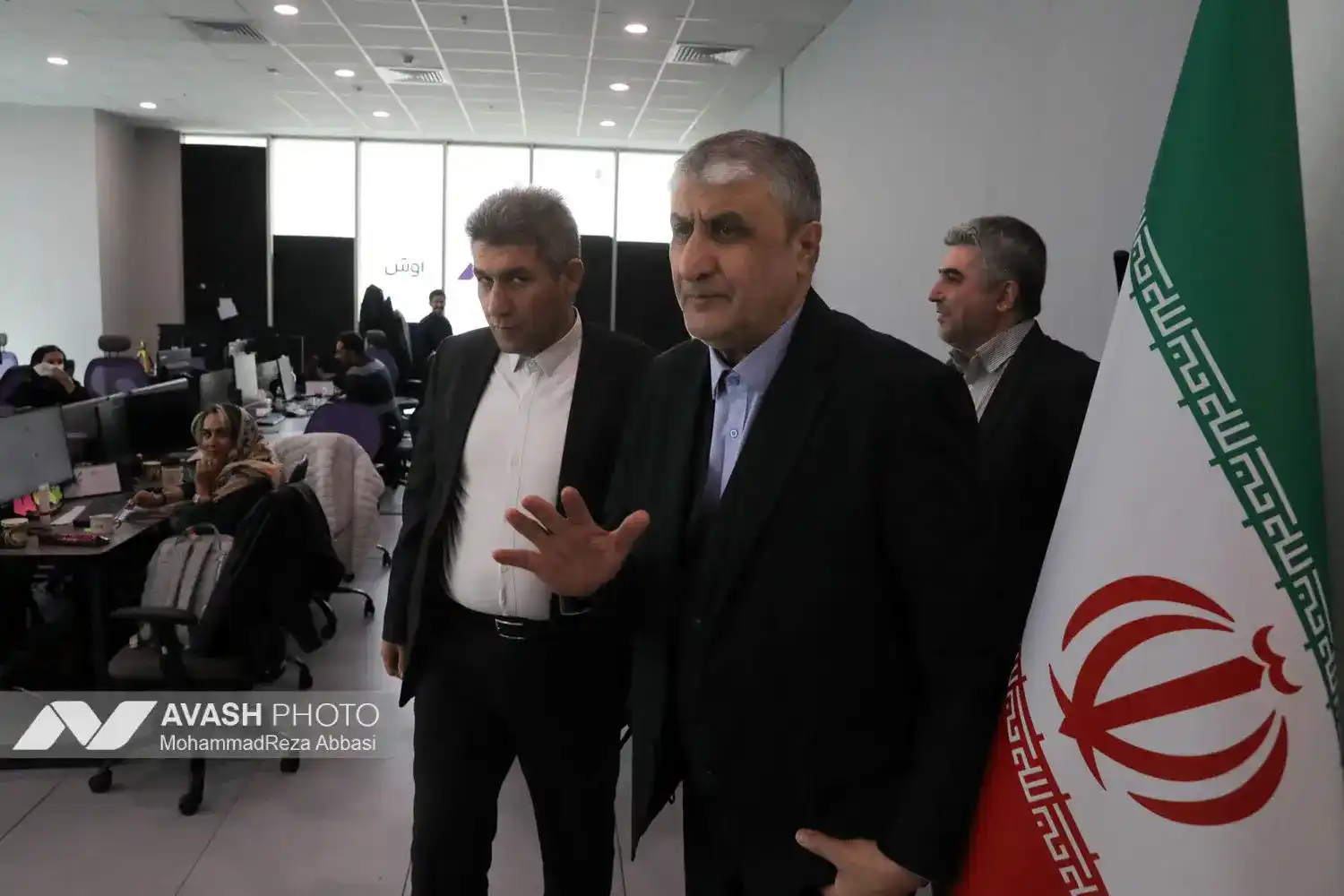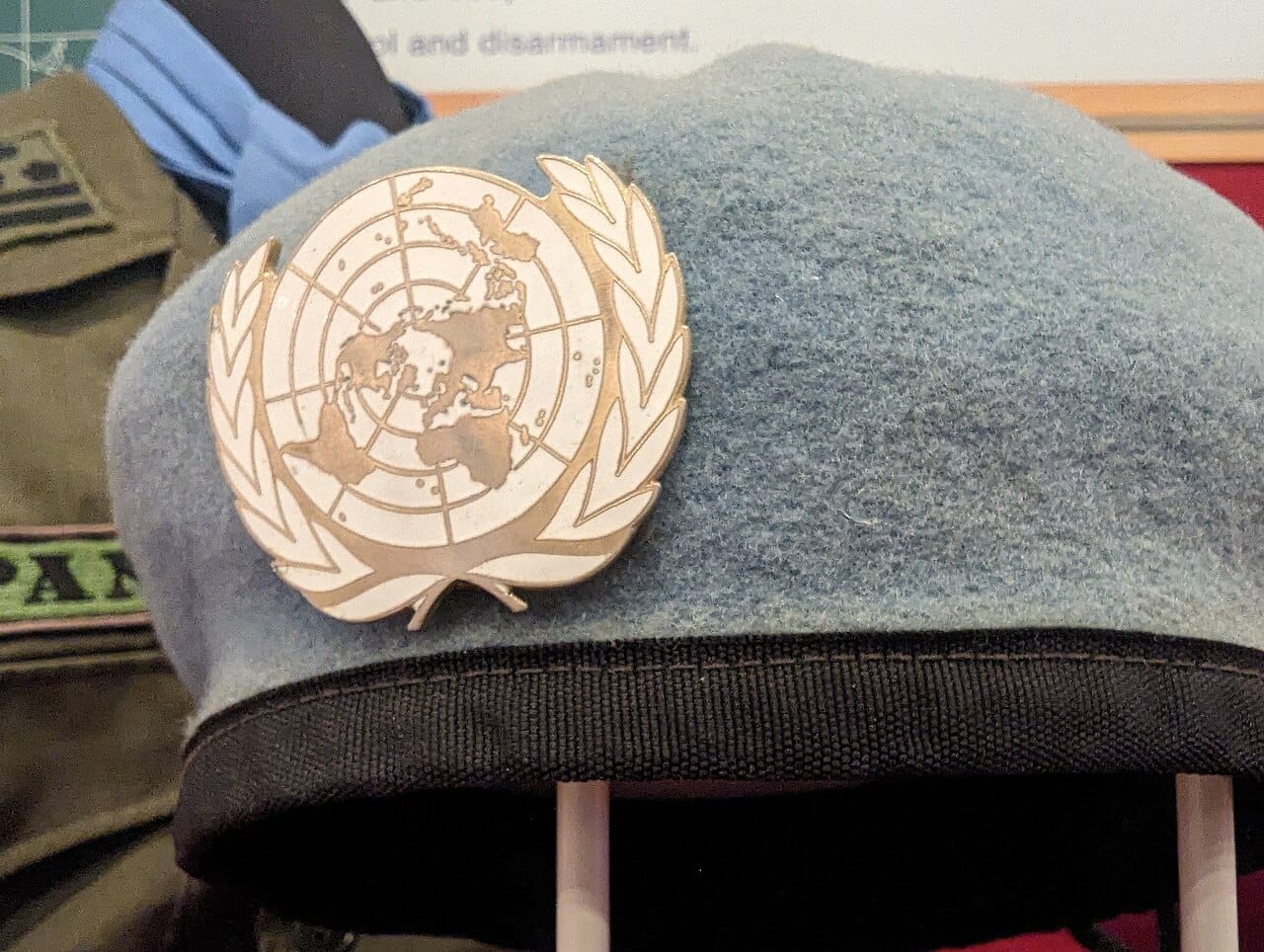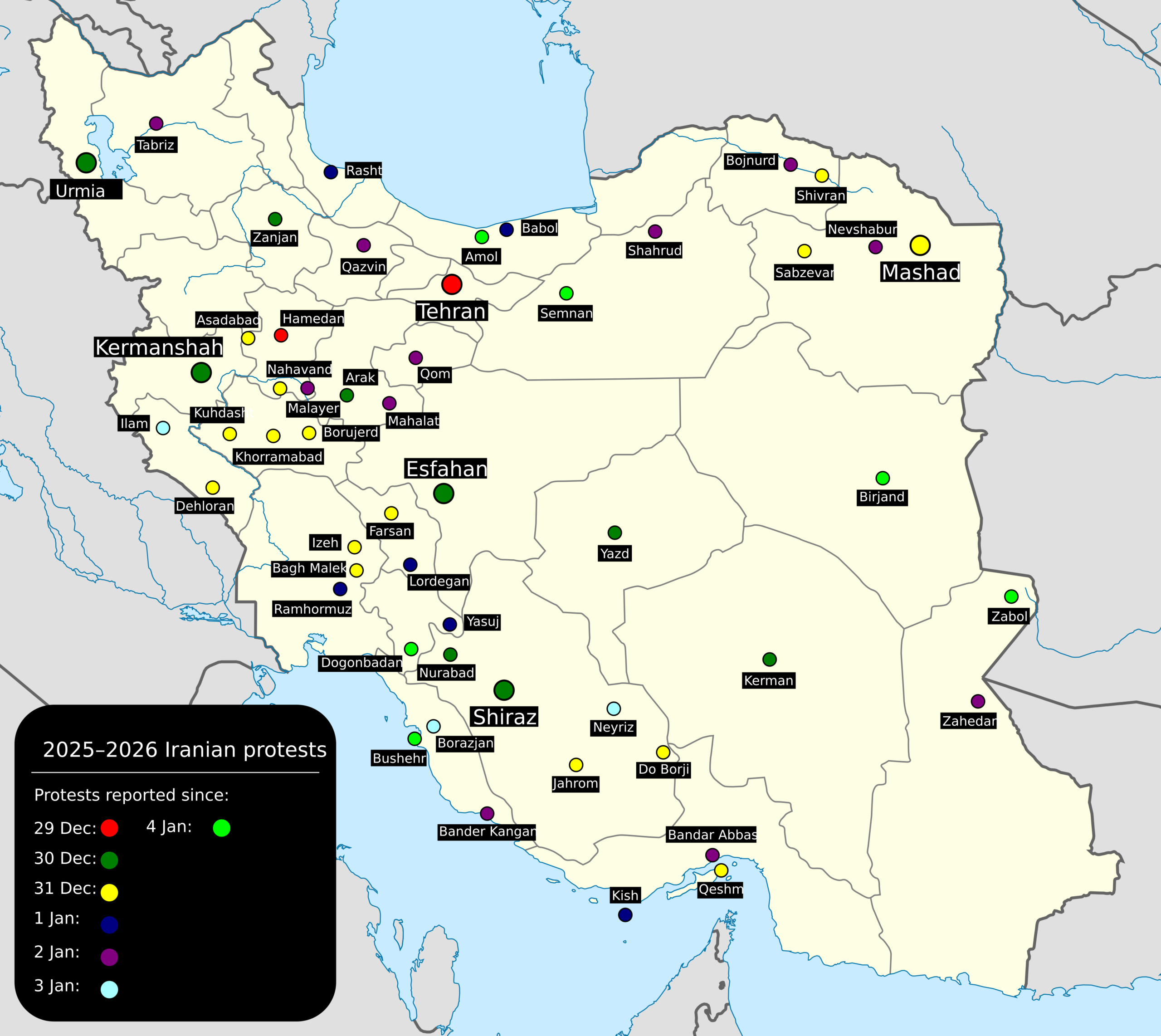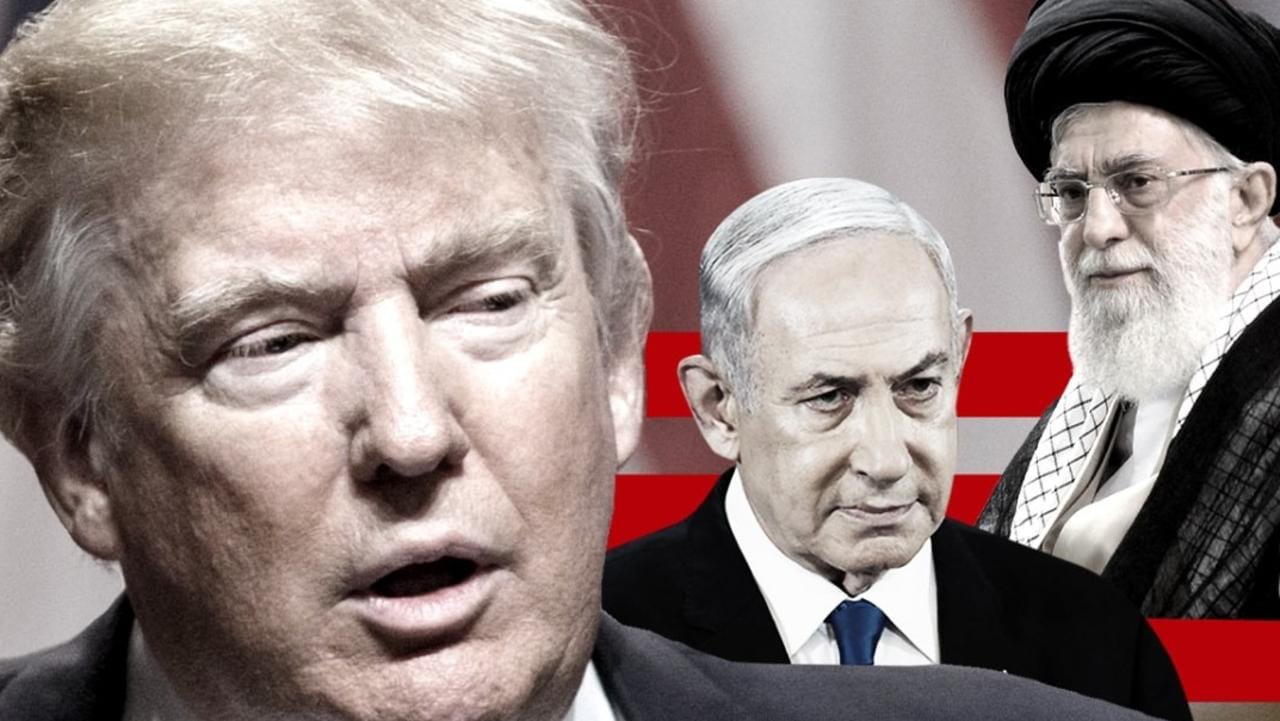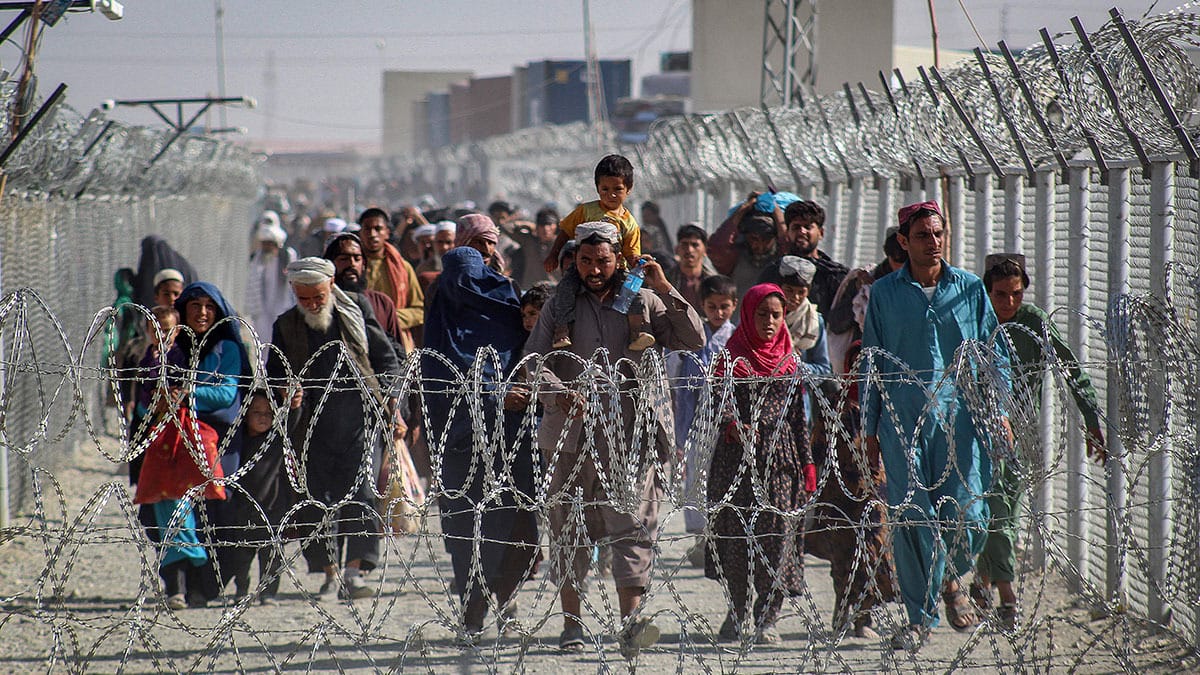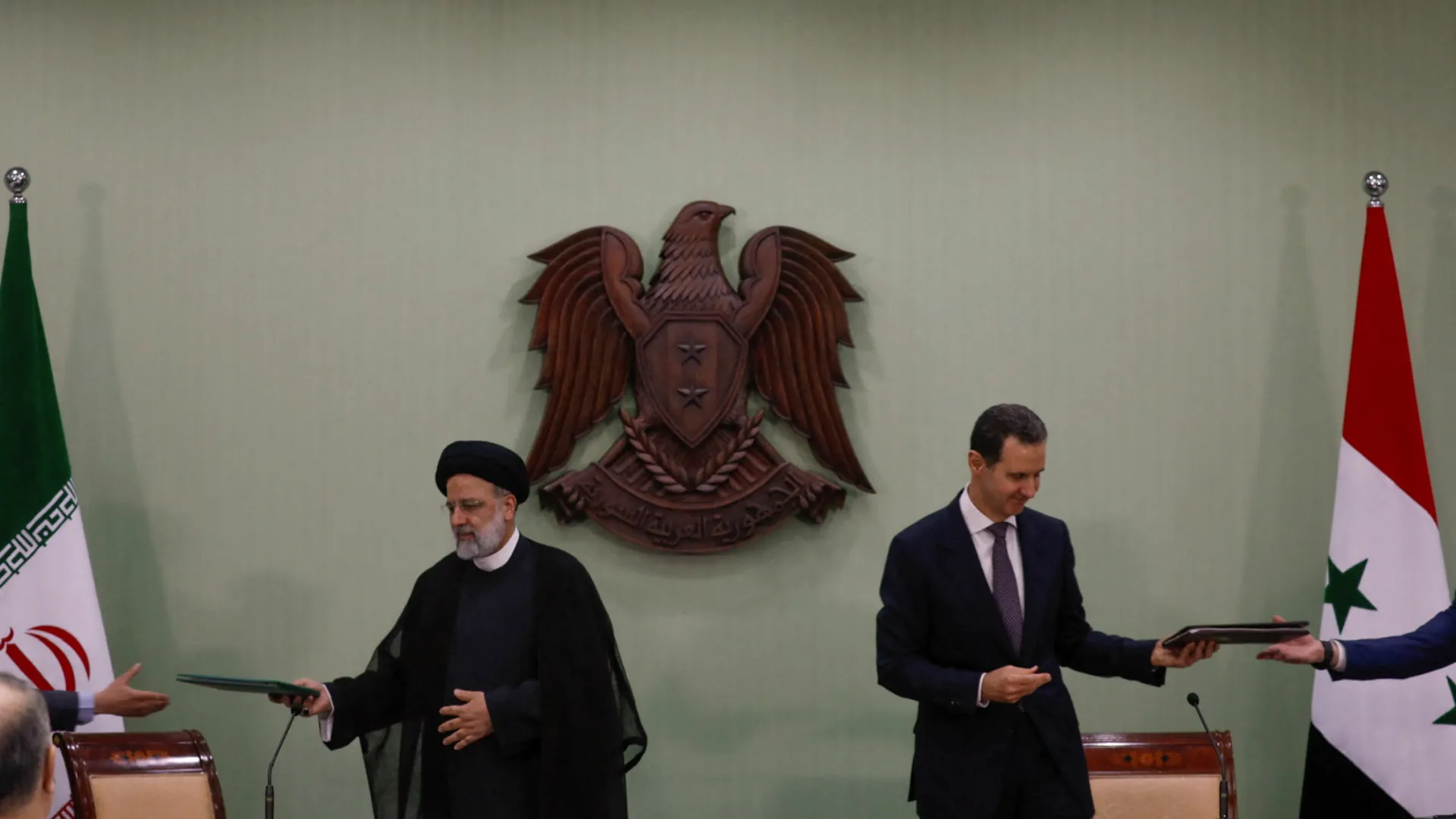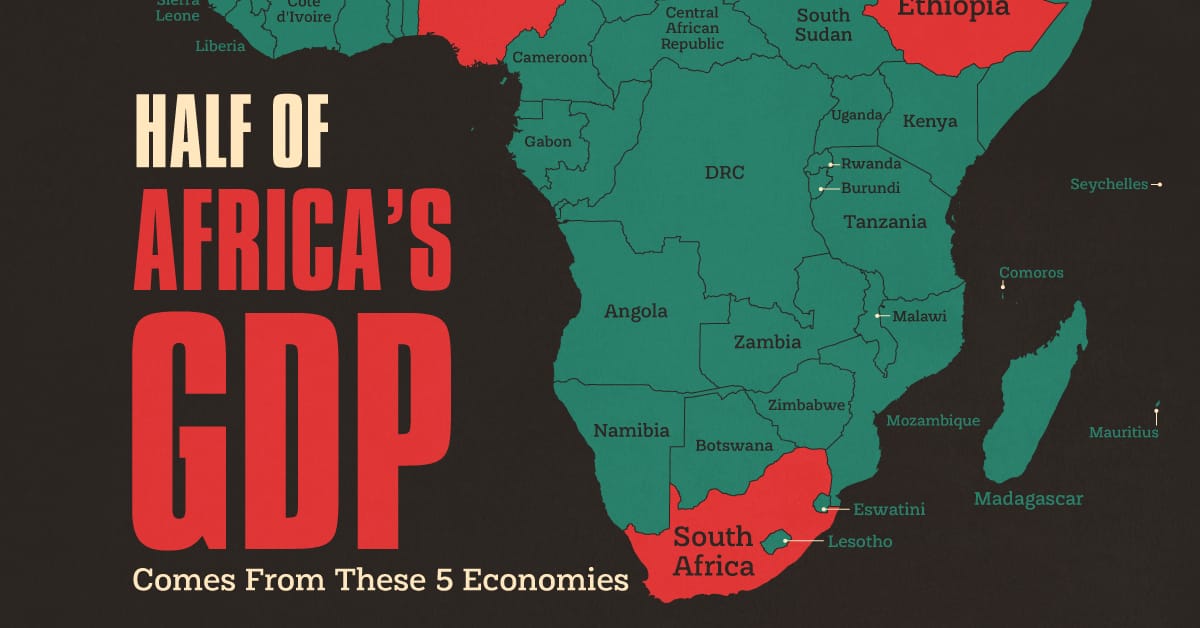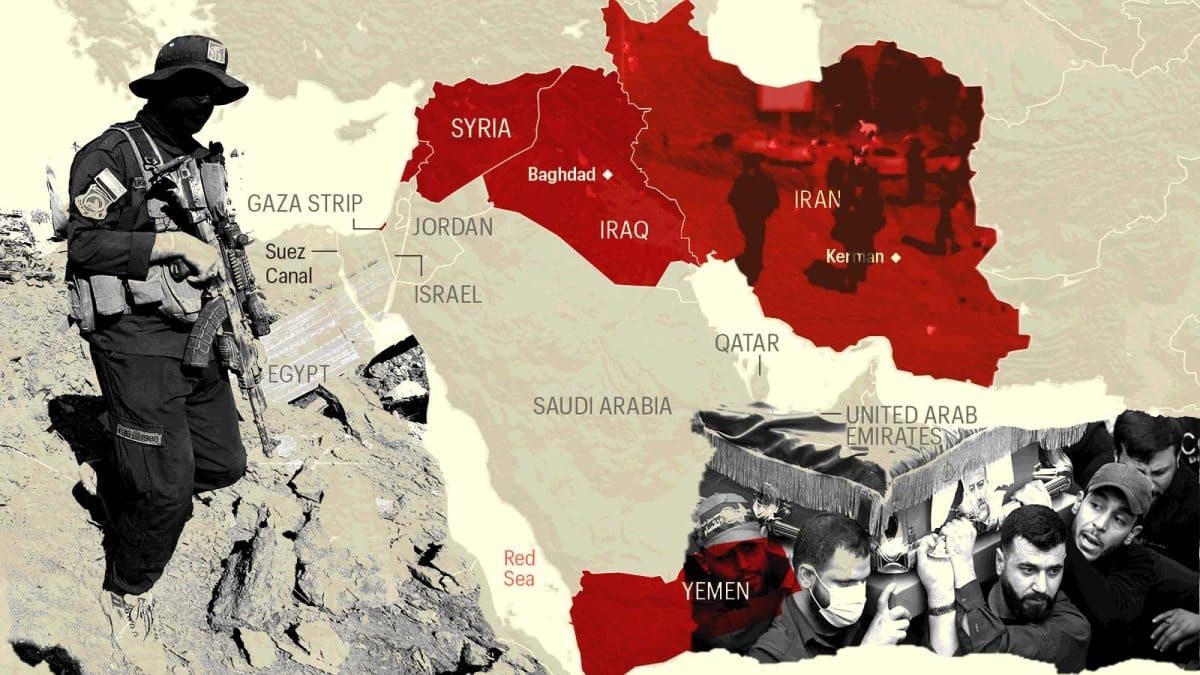For twenty years, Iran’s nuclear program has been a key point of contention in U.S.–Iran relations. After the U.S. exited the 2015 Joint Comprehensive Plan of Action (JCPOA), Tehran gradually increased its enrichment levels beyond the established limits. Diplomatic attempts in 2025 led to indirect talks facilitated by Oman and Italy, but these efforts fell apart due to escalating tensions, particularly following a 12-day conflict involving U.S. and Israeli attacks on Iranian nuclear and military facilities in June 2025.
Tag: Iran
10 Conflicts to Watch in 2026
As we moved into 2026, the world is no longer merely “watching” conflicts – it is living with them. Civil war in Sudan has deepened into a regional humanitarian catastrophe, Ukraine remains locked in a war of attrition with global consequences, India-Pakistan tensions continue to cast a long shadow over South Asia and multiple theatres across Central Africa are sliding into protracted violence. This special newsletter revisits the evolving conflict landscape and examine what these wars reveal about power, governance and the fragility of the current global order and why their trajectories in 2026 matter far beyond their immediate borders.
Economic Collapse and Political Revolt: Iran on the Edge
Since the last week of December 2025, Iran has seen its largest uprising in years. The immediate cause was the collapse of the national currency, the rial. Shopkeepers in Tehran’s Grand Bazaar shut their stores in protest, sparking a nationwide demand for political change. What started as an economic complaint quickly escalated into a direct challenge to the theocracy. The unrest spread to at least 78 cities and over 200 locations by early January 2026. This movement, met with harsh repression, has tested the regime’s stability.
Trump’s Middle East Gamble
Since President Donald Trump’s inauguration for his second term in January 2025, the geopolitical landscape in the Middle East has undergone profound changes. The administration’s renewed assertiveness has reignited longstanding disputes and strategic rivalries, most notably among Iran, Israel, and the United States. This article provides a comprehensive, practical analysis of these developments—detailing U.S. military engagements, Iran’s nuclear ambitions, Israel’s strategic recalculations, and the broader regional and international ramifications.
Balochistan Terror Attack: A New Phase in Insurgency?
Balochistan, Pakistan’s largest yet most underdeveloped province, has been a hotspot for insurgency, terrorism, and geopolitical contestation. The recent terror attack in Balochistan, which targeted security forces, infrastructure, and civilians, has once again underscored the province’s precarious security situation. Beyond its domestic impact, the attack carries significant regional and international implications, particularly for Pakistan’s relations with India, China, Iran, and Western powers. This article provides an in-depth analysis of the attack’s origins, the regional and global responses, and the effectiveness of counterterrorism efforts.
Afghan Refugee Crisis: Assessing Pakistan’s Shifting Policies
Least-developed countries host the largest number of refugees, according to UNHCR. In Asia and the Pacific, 90% of all refugees are concentrated in three nations: Iran (3.4 million), Pakistan (1.7 million), and Bangladesh (952,400), with Iran and Pakistan sheltering one of the largest Afghan refugee populations. Once a safe haven for Afghans fleeing persecution, Pakistan’s stance has now drastically shifted. The Pakistan Interior Ministry has advised all Afghan nationals to leave by March 31, 2025, with Afghan Citizen Card (ACC) holders required to depart voluntarily before the deadline or face deportation from April 1, 2025. This directive falls under Pakistan’s Illegal Foreigners Repatriation Program (IFRP), in effect since November 1, 2023.
Iran in Syria: A Strategic Setback, Not a Defeat
The blitzkrieg campaign by the Syrian rebel coalition headed by the Hayat Tahrir Al-Sham (HTS) leader Abu Mohammed al-Jolani ended the five-decade rule of the Assad family in Syria. President Bashar al-Assad was removed from power after an arduous and long decade of protest by the rebel groups. Amidst the dramatic shift, the future stakes of Iran in Syria have come into the spotlight. Being a prominent ally of Assad, Iran has faced strategic setback in a country crucial to enhancing its strategic depth. Nevertheless, it is too early to determine the aspect of strategic defeat as Tehran has the vitality to recalibrate its policy.
African Economies will Flourish in 2025
In October the IMF described a “two-track growth pattern” in sub-Saharan Africa. On one track are most of the 23 countries with sizeable exports of non-renewable commodities such as oil, gold or diamonds. These include Angola, Nigeria and South Africa. As prices for their exports sagged, their GDPs per person have dropped in the past decade. Most resource-rich countries have also been focused more on dividing the spoils of the boom years than on using the proceeds to build resilient economies.
Israel’s Ceasefire in Lebanon and Iran’s Next Move
Iran analysts live by two core assumptions: that the country wants to fight Israel through proxies, rather than directly, and that it doesn’t want all-out war. Both now look fragile. Iran launched missiles at Israel in April and October, both in retaliation for Israeli attacks. Most of the missiles were intercepted. But now Iran appears weaker: Israeli strikes on Iranian military facilities on October 26th struck a blow to its defences and its strategy. And the killing of Hizbollah’s top ranks dealt a blow to the “axis of resistance”, a group of militias backed by Iran.
Why Nuclear Weapons Remain the Privilege of the Few?
While a lot of countries associate the possession of nuclear weapons as a huge plus to their geopolitical power, there are still some that fear the consequences and stay within the protected boundaries of conservatism while going international. No matter how awed we can be when seeing nuclear missile tests or new launches happen, we still have a long way to go to see what constitutes hegemony very easily here and how only 9 countries in the world have gone nuclear so far. The problem with this distinction is, it is no longer dependent on resources or military strength, but rather a very calculative set of steps that go beyond what a simple human can imagine.
